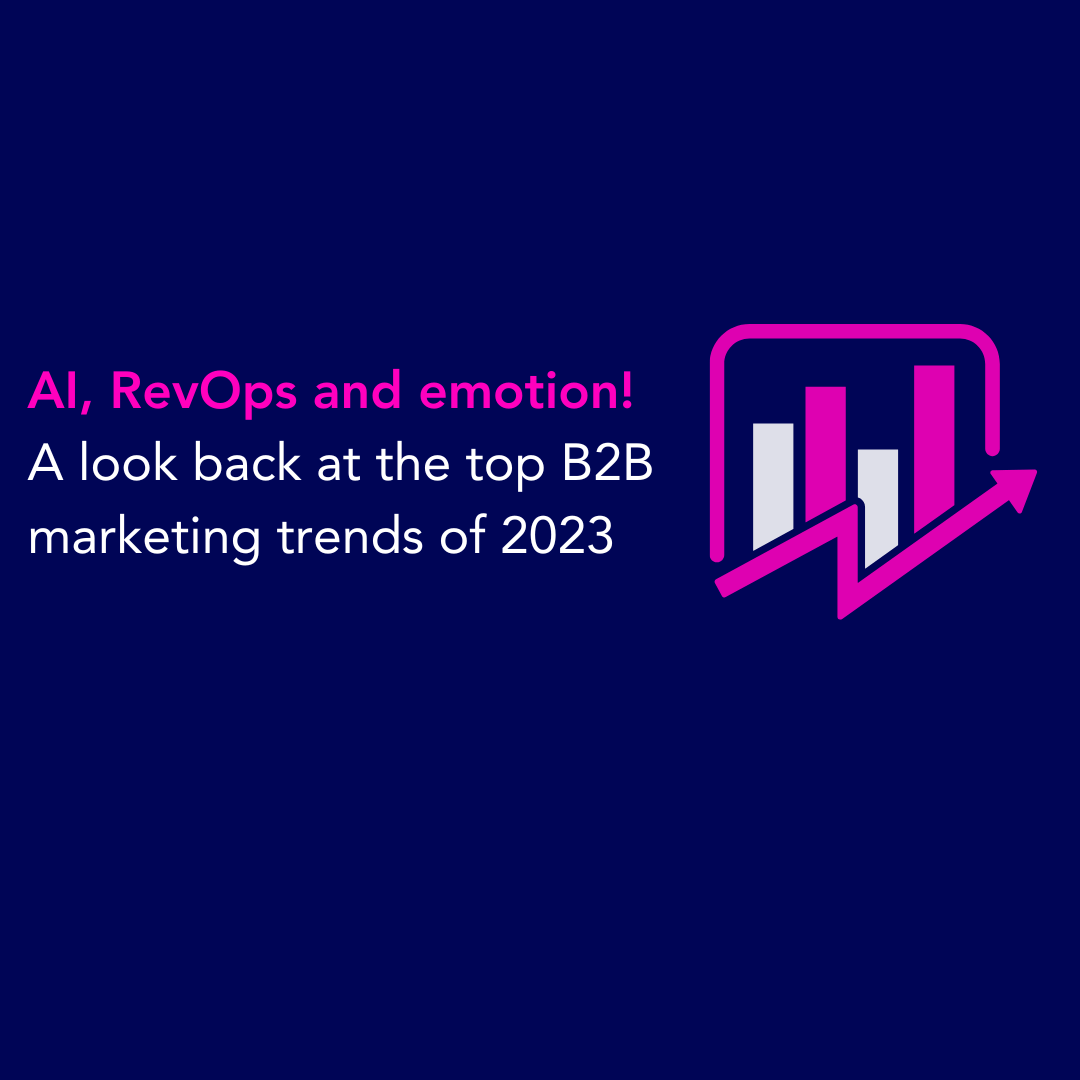It’s that time of year where we all start to reflect on the trends that have had the biggest impact in 2023. At Bright we’ve spent our year reinventing marketing with our amazing clients, including injecting greater agility into how marketers work together and with other revenue generating teams to refocus on the customer. It’s been a big year for marketing transformation. Marketing is emerging stronger, leaner, more data-driven and able to be more effective and efficient at engaging audiences.
It’s been a rollercoaster from a macroeconomic perspective and as a business founder and MD there’s been a lot to navigate personally, as well as helping clients become more adaptable and able to manage change.
One of my highlights was being selected as a juror for the Cannes Lions International Festival of Creativity for the B2B Creative Lion. Not only was this an amazing experience but it gave me unique insights into some of the biggest trends and critical success factors in B2B. Ranging from why you need to forge an emotional connection with your audiences, to the need for investment in long-term brand building to augment your demand and performance marketing.
As well as this, we have seen the growth of AI and RevOps (my personal favourite), and marketers moving further away from a traditional funnel to a fly wheel model. Throughout all of this, an agile marketing approach is fundamental to being able to quickly test and adopt these developments by staying responsive, data-driven and collaborative.
The importance of emotion and patience
During my time as a judge at Cannes Lions it was clear that a shift towards a more creative approach (akin to the boldness of B2C) is increasingly evident and showing results in B2B. It’s evident in successful campaigns such as Workday’s Rockstar and Disco’s Lady J [add links] B2B marketers to use emotion in their campaigns to achieve cut through and connect with their audiences.
Research has shown that using emotion, storytelling, and humour leads to better audience engagement. Campaigns with purely emotional content performed about twice as well (31% vs. 16%) with only rational content according to neurosciencemarketing.com. This is still fairly new ground for B2B marketers so using agile principles to test and measure what works and what doesn’t is key.
The other trend I saw emerging at Cannes Lions was that patience is a virtue in B2B. From the entries we consistently saw more of a focus on long-term brand building, and a move away from over-reliance on performance marketing. According to LinkedIn’s B2B Marketing Benchmark report, 59% of B2B marketing leaders say their C-suite has increased the importance of brand building given economic conditions. Fellow B2B Creative juror Ty Heath, Director of Market Engagement at LinkedIn’s B2B Institute commented: “Brand building is the single greatest opportunity in B2B. We see that most B2B marketers are over-leveraged in lead generation, but brand building is what drives future cash flows.”
The AI wild west
No 2023 wrap-up would be complete without mentioning the impact of generative AI. This was the year when AI really started to disrupt B2B marketing, and beyond. The areas where we have seen the biggest impact from generative AI has to be in content generation with the launch of ChatGPT back in November 2022, what a difference a year makes! Other content AI tools soon followed. Lead generation tools such as LeadIQ and Kartra are also helping to identify and generate high-quality leads for B2B marketing campaigns.
AI in marketing offers unpreceded opportunities, with many starting to realise efficiency gains through simple use of AI apps within their existing martech. Longer term marketing leaders will need to understand which types of AI to test and invest in and how to approach it. Privacy and security related issues are a key consideration. Leaders need to set up their teams to be able to successfully test AI solutions by putting in place the guardrails for successful and safe adoption of AI. This points to an agile marketing approach and being able to test and learn then quickly scale where value is demonstrated. Marketing leaders need to be careful to safeguard and remain customer centric and authentic. Quick efficiency gains could spell disaster without proper consideration around effectiveness and the impact on engagement. There is plenty of upside in AI adoption as long as developed within a proper framework.
From funnels to fly wheels
The move away from a funnel view of our customers to a fly wheel model continues to gain traction. In a traditional marketing funnel model, the focus is on attracting customer prospects and then converting them to purchasing customers. But marketers have realised that it’s not just about acquisition and customers can fall out of the model. Smarter marketers are recognising the full value of a customer and the need to market to clients at every stage of their lifecycle. By fostering loyalty and advocacy you can maximise the customer lifetime value.
The flywheel model focuses on keeping existing customers engaged and turning them into repeat customers who are also willing to act as promoters for your business. The flywheel business model is more effective and should drive higher revenue because it prioritises the customer.
The rise of RevOps
Another big trend in B2B marketing this year has been the growth of Revenue Operations or RevOps . Aligning your revenue generating teams – sales, marketing and customer success functions across the customer life cycle to drive growth and keep teams focused on the same metrics and KPI is quickly becoming table stakes. This cross-functional alignment clearly requires an agile approach, breaking down siloes to improve communication, collaboration and alignment to business goals.
Agile remains key
What’s clear is that 2023 has been one of the most exciting years for B2B marketing. All of these trends have the potential to transform how we engage with our audiences and increase marketing effectiveness. While the developments and trends in our industry are exciting, it can get overwhelming to keep up and remain innovative. An agile, growth mindset, alongside the related tools and processes enables marketing teams to respond quickly and effectively to changing customer preferences, market conditions and developments to ensure they are delivering the best results for their companies and clients.
Get in touch to find out how Bright can help you harness agile marketing to deliver your marketing strategy in 2024.
Resources/reading list:

